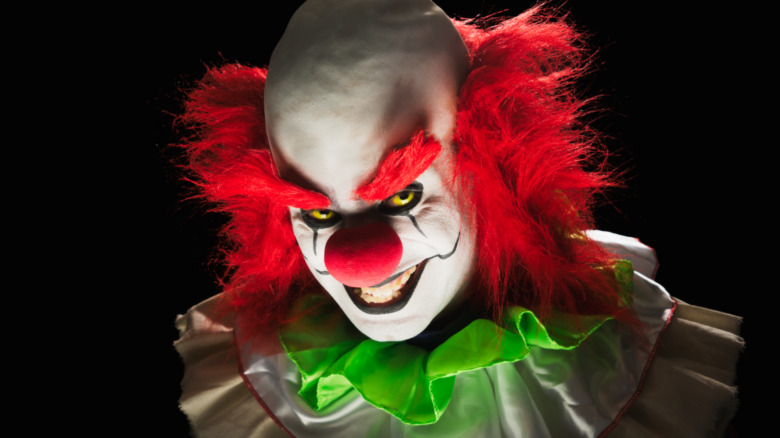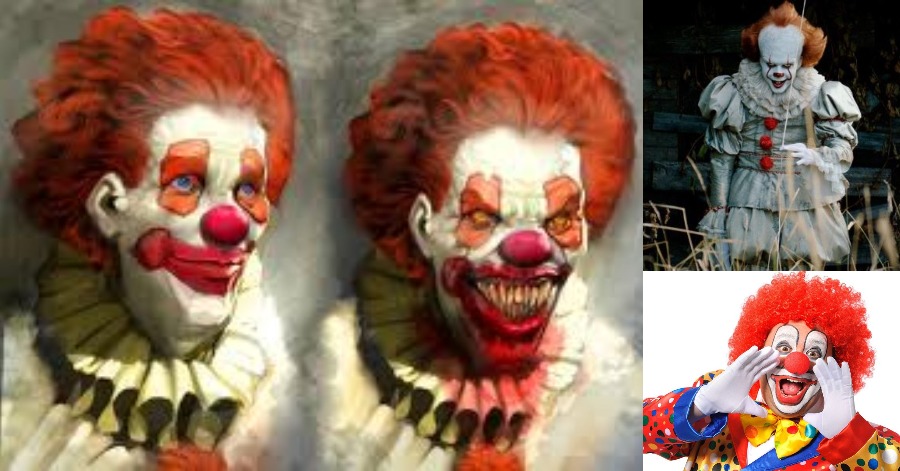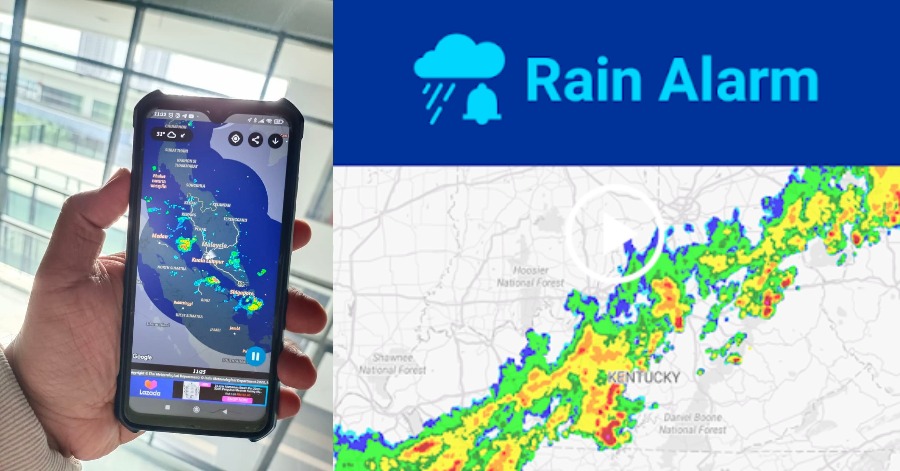When we think of clowns, one of two visions usually come to mind. It’s either the playful, friendly clown at your birthday party or the evil, scary clown that haunts you in your nightmares. The reasons for such widespread fear can vary from their painted, unfamiliar faces of clowns to their wildly exaggerated outfits. Be that as it may, one thing remains certain and that is, clown phobia is actually no laughing matter.
Coulrophobia is an extreme fear of clowns. If you have this phobia, then you most likely believe clowns are creepy and frightening. If you are terrified of clowns, you may also feel the same way about mimes or other characters who paint their faces in a similar way. It’s likely that you may even feel traumatized at the mere thought of a clown. Although you might be able to rationalize with yourself that clowns are not going to harm you in any way, it’s difficult to shake off the fear.

Symptoms Of Coulrophobia
- Nausea
- Panic
- Anxiety
- Sweating or sweaty palms
- Shaking
- Dry mouth
- Feelings of dread
- Difficulty breathing
- Increased heartbeat
- Intense emotions such as screaming, crying, or becoming angry at the sight of the object of fear such as a clown for example
Causes Of Coulrophobia
- Scary movies.There’s a connection between scary clowns in media and people being intensely afraid of them. Viewing too many scary movies with clowns at an impressionable age can have a lasting impact — even if it was just once at a friend’s sleepover.
- Traumatic experiences.Having an experience that involves a clown where you were paralyzed with terror or were unable to escape the situation could be classified as a traumatic experience. Your brain and body would be wired from that point on to flee any situation involving clowns. While this isn’t always the case, it’s possible that your phobia may be tied to traumas in your life, and it’s important to discuss this as a possible cause with a trusted therapist or family member.
- Learned phobia. This one is a little less common, but it’s equally possible that you may have learned your fear of clowns from a loved one or trusted authority figure. We learn rules about the world from our parents and other adults, so seeing your mom or older sibling terrified of clowns may have taught you that clowns are a thing to fear.
Treatment For Coulrophobia
- Psychotherapy. You meet with a therapist to talk through anxieties, phobias, or other mental health issues you may be facing.
- Medication. Medication is best used in conjunction with regular talk therapy while treating your phobia.
- Home remedies. Practicing a few helpful relaxation habits and techniques at home may help.
Sources: Healthline.









Leave a Comment